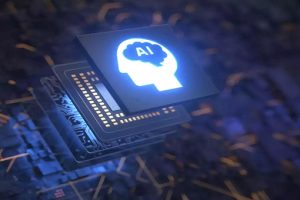Singapore’s Ministry of Education (MOE) is poised to usher in a new era of artificial intelligence (AI) integration in schools, building on the success of an innovative maths tool designed for Primary 5 students. This AI-powered tool, known as the Adaptive Learning System, has been effectively implemented in Lakeside Primary School and Rosyth School, revolutionizing the teaching and learning experience by enabling educators to pinpoint students in need of extra support in specific areas of mathematics.
Education Minister Chan Chun Sing unveiled plans to expand the adoption of AI tools in educational institutions, citing the remarkable success of the maths tool as a pivotal development within the framework of the EdTech Masterplan 2030. The Adaptive Learning System leverages machine learning to offer personalized learning recommendations for each student based on their responses to questions and interactive activities. It seamlessly integrates with the Singapore Student Learning Space, the national online learning platform used in schools across the nation.
Educators have lauded these AI tools for their effectiveness in helping identify individual student needs while affording teachers more time to provide personalized support. Senior teacher Edmond Lee from Rosyth School highlighted the time-saving aspect of the AI system, which automates the process of score compilation and gap identification in students’ understanding before commencing a new topic.
The Adaptive Learning System, powered by AI, serves as a preparatory learning tool, allowing students to engage with questions related to forthcoming topics before classroom instruction begins. Teachers can leverage the feedback and data collected by the AI system to pinpoint areas where students may be encountering challenges and then tailor their lessons to address those specific needs.
Mrs. Finella Goh, the principal of Lakeside Primary School, underscored how AI empowers students to progress at their own pace. This system equips teachers with the flexibility to meet students at their current level and adjust the pace of instruction accordingly.
Minister Chan Chun Sing emphasized that AI functions as a complementary tool, bolstering teachers’ efforts to reinforce concepts and guide students through complex problems. He also stressed the importance of introducing AI literacy to students, preparing them for a technology-enhanced future.
In addition to the broader implementation of AI tools, schools are also incorporating AI literacy programs to acquaint students with foundational AI learning. Anderson Serangoon Junior College, for instance, has partnered with AI Singapore to provide students with AI literacy courses, enhancing their digital literacy and skills.
Singapore’s MOE’s forward-looking approach underscores the transformative potential of AI in education, ensuring that students receive personalized support and the skills needed to thrive in an increasingly technology-driven world.
Top of Form






















